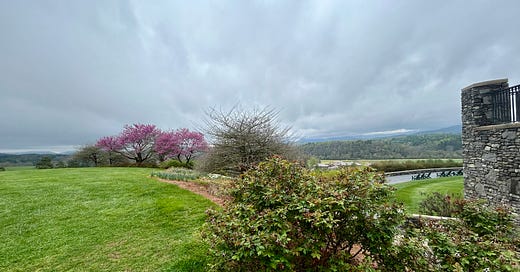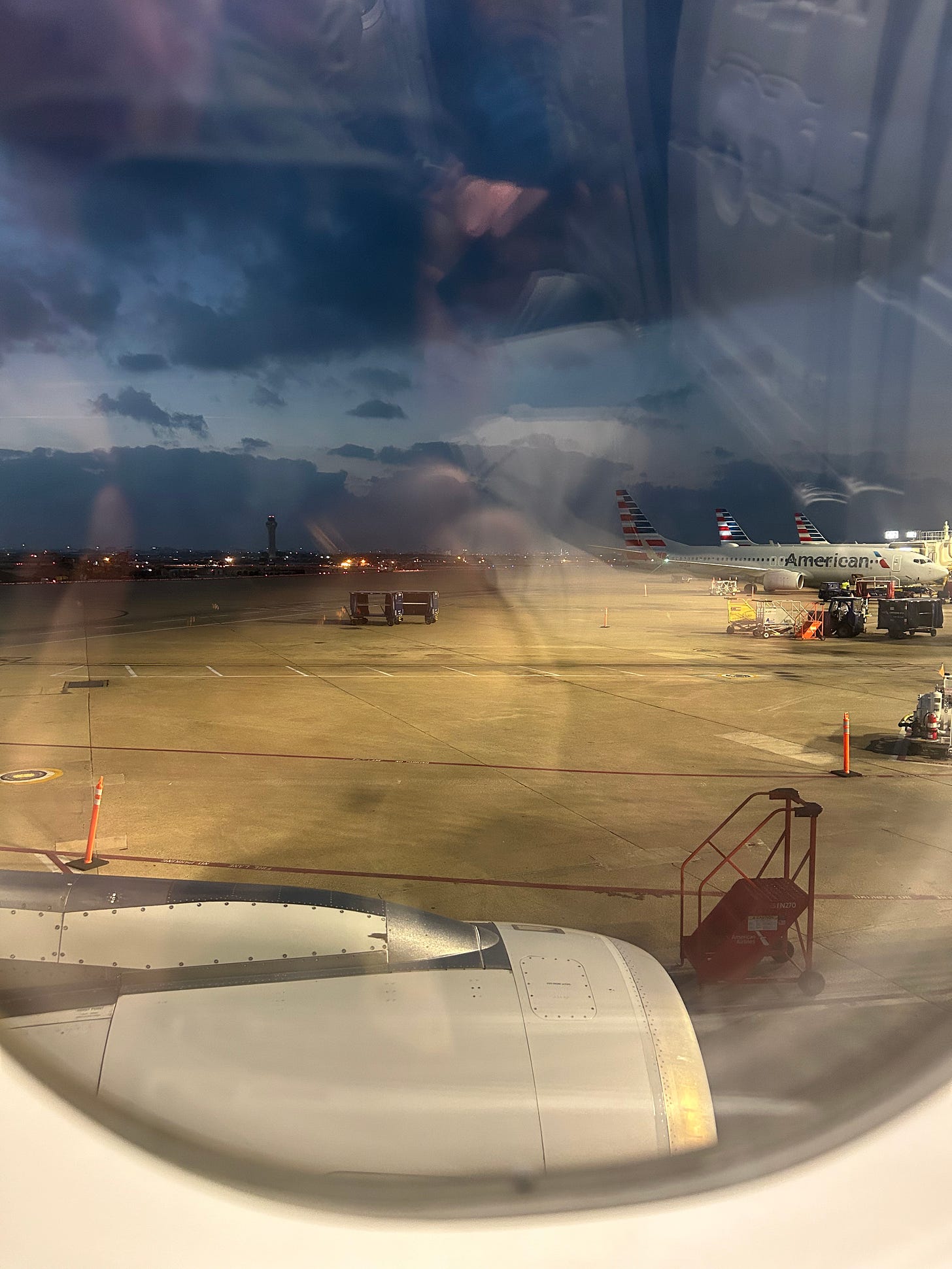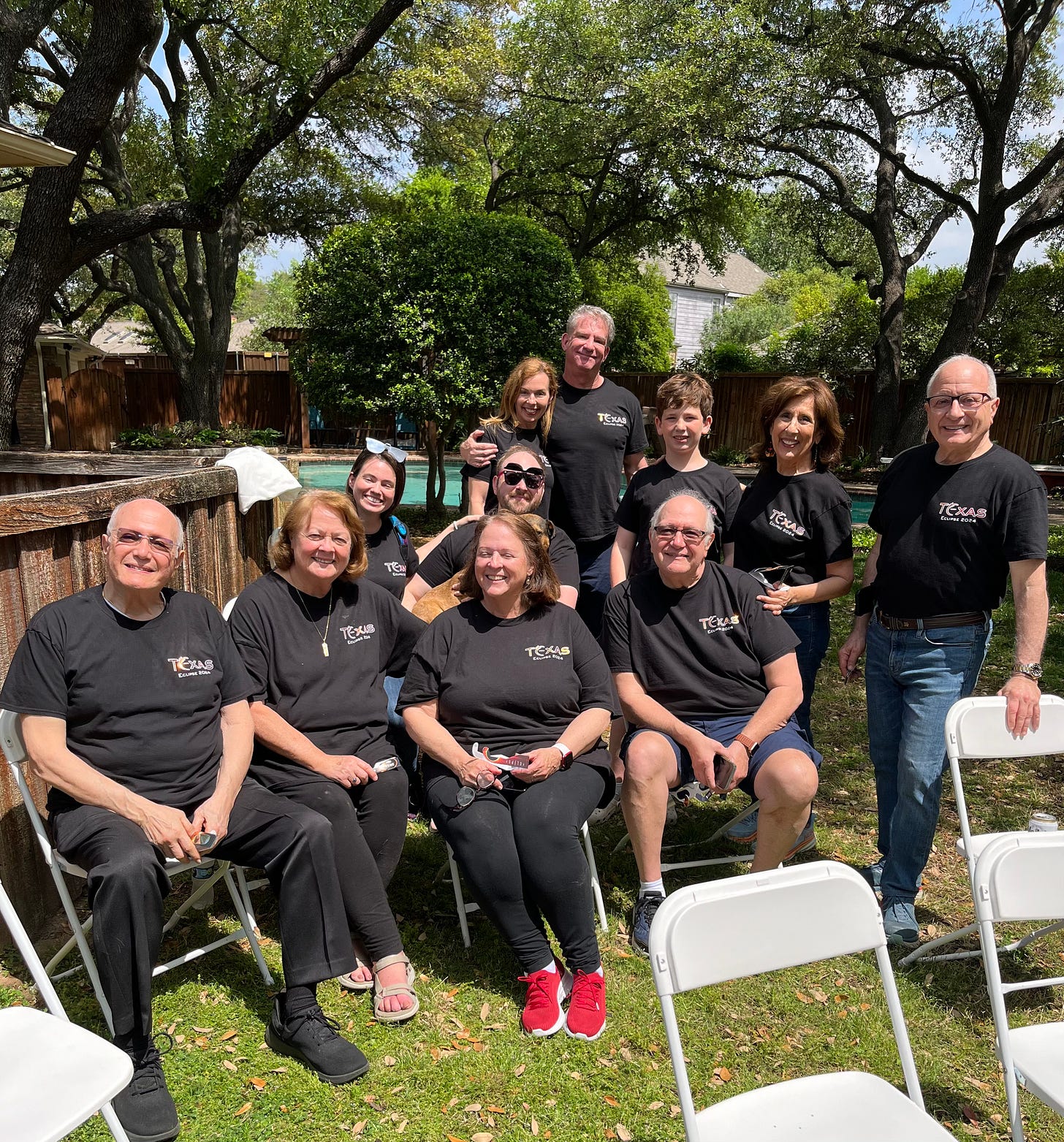In the days leading up to it, my chiropractor said he didn’t care about the eclipse. Face-down on his table, I couldn’t gauge his expression. I wanted to search beneath his alleged indifference. During the eclipse, I would be en route to Asheville, North Carolina. I wondered if he, too, was going to miss it and had to tell himself that that was ok. Then he mused that he wasn’t into comets, either. “I don’t care about the sky,” he concluded. I was impressed. I thought everyone liked the sky. I’d never heard anyone admit otherwise.
In Texas, where I live, where Monday’s solar eclipse crossed the border into the country, I felt the social pressure to acquire the glasses, to attend the parties, to learn the language. This was one of those phenomena that gave us a language. The last time that happened was when Covid rolled in, when we were suddenly saying, PPE. Social distancing. Flattening the curve. Wuhan. This time, however, we were not afraid. This time, we were astronomers. Totality, we said, as if we were people who casually said totality. Peak totality, we said, despite the grating redundancy. Penumbra, we said. Annular, we said. We waited to be challenged, to be asked, What the fuck is a penumbra?
We were ready.

A question that sometimes arises among writers of personal nonfiction: How do you write about an event you weren’t present for? One way is to highlight the contrast between what you were doing and what you were missing, to filter the event through the lens of absence. In her essay The Fourth State of Matter, Jo Ann Beard writes about a day she stayed home, when a doctoral student in the physics lab where she worked shot the place up and then shot himself: “The first call comes at four o’clock. I’m reading on the bench in the kitchen, one foot on a sleeping dog’s back. It’s Mary, calling from work. There’s been some kind of disturbance in the building…”.
I am not comparing what I missed to what she missed.
And yet. At 1:40 post meridiem on April 8, 2024, I was sitting inside an airplane, motionless on the runway. Texas tipped its face to the sky. Through my window, the ground crew, clad in orange, lowered their wands to their sides like stunned magicians. In China around 1200 B.C.E., people carved eclipse records into tortoiseshells: The sun has been eaten. Now it was our generation’s turn. To witness that eating. To await Rapture. I’ve always wanted to be Raptured. I’ve always wanted to exist in a mystical world that razes the laws of this world. I held my eclipse glasses to my eyes and tried to angle my body as the world went dark, as the moon loomed before the sun like a tall hat in a theater audience.
“See anything?” my seatmate asked.
We were the girl in that Ray Bradbury story set on Venus, whose classmates lock her in a closet during the one hour of sunlight they’ve known in their lives. This is what we saw:
As I sat in the glare of fluorescent lighting watching the midday dark, my mom texted me a picture of my family. While the sun turned black, while the Earth became a negative of itself, my mother was texting me. My aunts, uncles, and cousins had traveled to Dallas to see this thing. All who weren’t yet retired skipped work. My nephew skipped school. In the thick of a Monday, they gathered in my parents’ backyard in matching eclipse T-shirts. My mother texted again: There’s one for you, too.
In her essay, Total Eclipse of the Heart, Annie Dillard writes about traveling to Yakima, Washington to see the 1979 solar eclipse. Because I was in utero, I missed that one, too. Her description calls to mind a bad acid trip: “What I saw, what I seemed to be standing in, was all the wrecked light that the memories of the dead could shed upon the living world. We had all died in our boots on the hilltops of Yakima, and were alone in eternity.”
I hope that’s what I missed while I sat inside that airplane—not a once-in-a-lifetime miracle, but wrecked light, death, the sun’s face hidden behind a mourning veil.
In the hour before the eclipse, my friend Kate had texted me, It’s not that big a deal, right? Who cares? And then: I can never enjoy the things that are supposed to be so special and fleeting.
I responded, I feel like I always miss the things that are supposed to be so special and fleeting (and lots of less fleeting, less special things, too).
I think I was born with the sense that the party is always raging in some other house, that the story is unfurling while I’m stuck in a closet. Is any human spared that worry? It’s helixed into our DNA, a relic from prehistory, when separating from the herd equaled death. Back then, we worshiped the sun. We loved the sun consistently, not every 40 years, not just in the terrifying minute when we looked and it was gone.
Love,
Diana
P.S. There are a few ways to engage with my posts and all are super-helpful: You can “like,” “comment,” and/or “share.” I would so appreciate that support.
P.P.S. What have you missed out on? Let me know in the comments!
P.P.P.S. A prompt: Write about an event you missed.







"I don't care about the sky" 😂 what a liar. Beautiful writing, only you could make a story about sitting on a plane instead of watching the eclipse interesting!
I live in the UK and our last total eclipse was in 1999. My most vivid memory of that day is standing in a dog turd in bare feet, so make of that what you will. You can attend the once-in-a-lifetime experience and still have a literally-shite time.